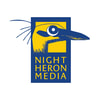|
So you’ve got an idea for a nonfiction book. Congrats! You might find yourself wondering where to start or how to kick off your manuscript, as things in the nonfiction world are a bit different. If you plan on publishing your work, most publishers and agents request book proposals for nonfiction pitches. Not familiar with this term? Read on for a brief guide on nonfiction book proposals. Book proposal guidelines may vary by agent and publisher, but most include these four sections: comparative titles, target audience, marketing plans, and sample chapters. Let’s break them down. Comparative Titles In this section, publishers/agents want to get a feel for your competition. Odds are, a few people have already written books on your topic. Research a dozen or fewer of these titles, and give a brief overview of these titles in comparison with your own book. Your goal? To use these to show publishers how your book offers a fresh perspective and how well your book will sell. Comparative titles should be fairly recent. Use this space to highlight your unique perspective and approach, as you briefly outline these other titles. Target Audience Nonfiction follows different rules than fiction. Keep in mind that a publisher will care about the marketability of your content as much as they care about your writing. For this reason, publishers want to know who you’re writing for and why they’ll read your book. Specify your audience with tangible evidence and detailed character outlines. Publishers know the industry, but they’re not experts on your topic. They want to know what you know about your audience! Marketing Plan Since publishers expect that you’re an expert or professional in your field, they can assume you have direct access to an audience who might be interested in your book. How can you market your book? Don’t just list the resources available to you. Instead, be specific about what you will do and not what you might do. This confidence will go a long way. The more detailed your marketing plan, the better. Numbers show publishers you’ve done your research! If you don’t feel confident in your platform, try growing it before submitting your proposal. Sample Chapters Of course, publishers will want to see some of what you’ve written. You want to make a good first impression, and that means you should submit the strongest chapter(s) in your book. Since nonfiction doesn’t always rely on narrative, you can take your sample from anywhere. You might feel tempted to submit your introduction, but the publisher already knows what your book is about. Show them what your writing is made of instead! Remember to check what information specific agents/publishers expect from your book proposal. If you’re precise and can showcase your talent, you’ll be hearing back in no time! By Sydney Meve, Intern
0 Comments
Your comment will be posted after it is approved.
Leave a Reply. |
Categories
All
Archives
March 2022
|
|
Help preserve our history and share our stories through the book and media arts by making a tax-deductible donation today.
Night Heron Media is a 501(c)3 non-profit corporation registered in Texas.
|
Copyright © 2024 by Night Heron Media


 RSS Feed
RSS Feed